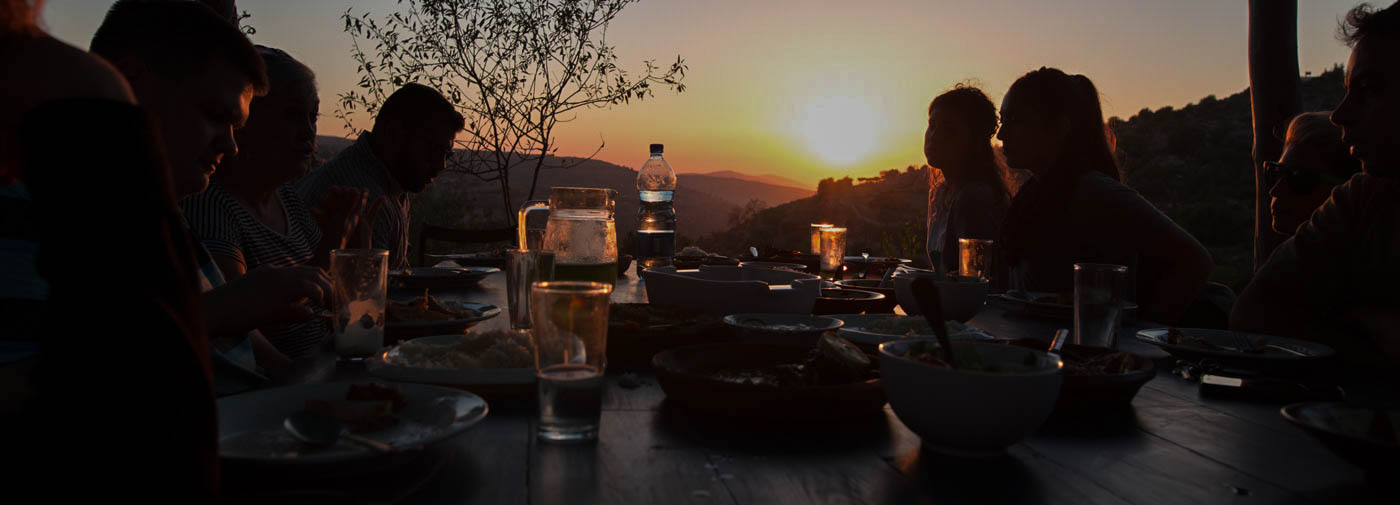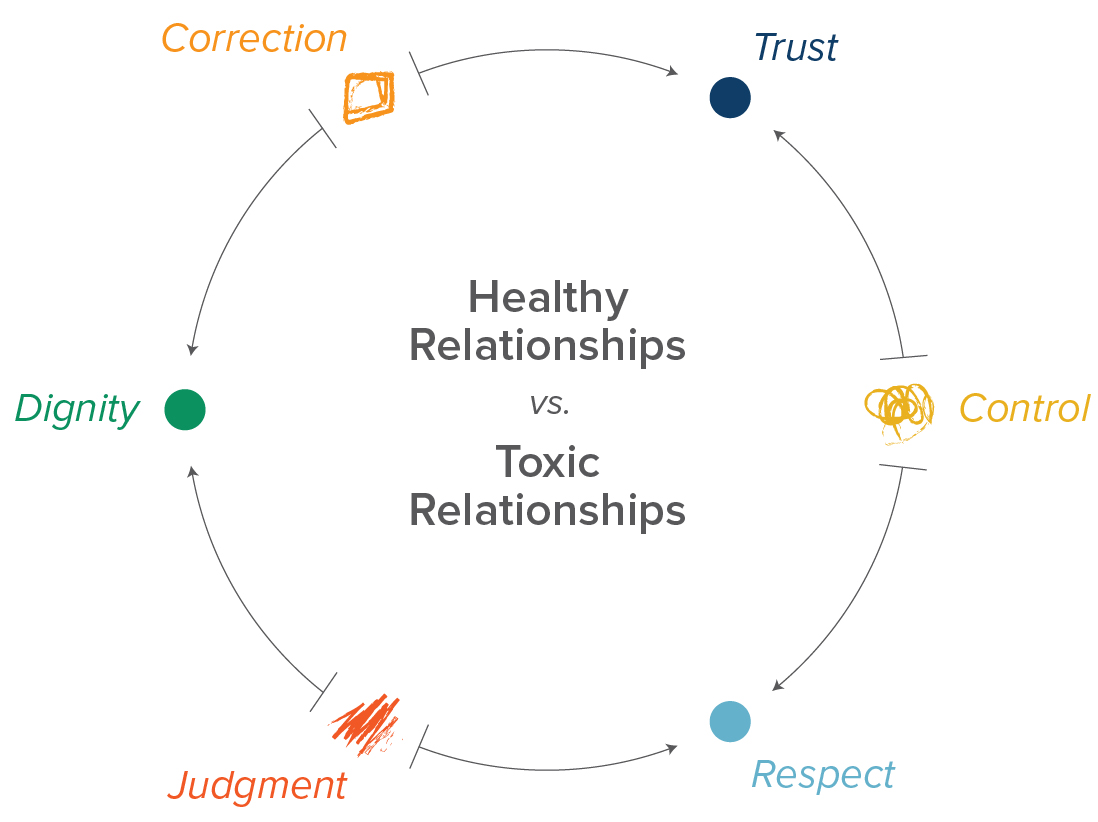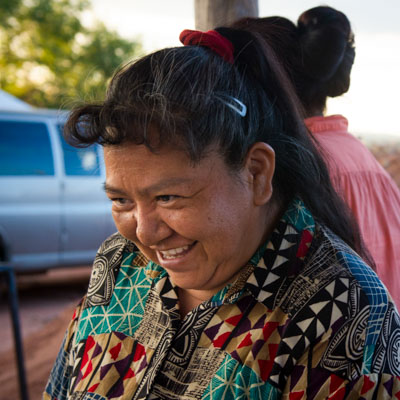
EM Best Practices for Cross-Cultural Engagement
The Value of Relationships
on Service Learning Trips
The Value of Relationships on Service Learning Trips
It's important to never forget: everyone we meet while participating in a service-learning trip or program embodies the image of God and is worthy of love, respect, and the dignity of being seen as a whole person. Because of this, we choose not to see anyone as our “mission project.” While it may appear to us that change is needed in certain communities, our job is to support and empower change that comes from within the community itself. Through this lens, EM’s approach to Healthy Relationships seeks to illuminate a better way to engage. One that does not seek to impose our way of thinking, cultural values, or beliefs on others.
Read through the different aspects of healthy and toxic relationships, understanding the choices we have each turn to value the people in front of us over our own desires. For all of us on staff, these principles are not only how we approach relationships in the field, but also how we embrace people in our day-to-day lives:


Respect
Respect
In our eyes, true respect for people is built on our capacity to love and accept everyone as they are. Mutual respect goes both ways—not only expecting and hoping for respect from everyone we meet but also giving that same respect to others. It means we see the inherent value of each person we come in contact with. We demonstrate our capacity to tap into God’s love for another person, and we accept people for the things we have in common and the things we don’t. Our job is not to change people, but to love them. Once we orient our focus to loving others, we are free from the need to change people and they are free from the pressures of our expectations.
Trust
Trust
Trust is the foundation of every healthy relationship. When we posture ourselves to listen and learn from others, we reorient our focus away from simply defending our own interests, values, and faith, and embrace the world and perspective of another. If I trust you, I believe in your capabilities, knowledge, and competency. If I give myself the opportunity to learn from you, that means I trust your word. If there is conflict and I listen to your side, that means I trust your perspective. This posture facilitates vulnerability, honesty, and kinship between people who might have had nothing in common before.
Dignity
Dignity
Where two or three are gathered, God is present. To truly partner with people means to recognize the contribution of all and to believe our collaboration together will bring better, longer-lasting results. This maintains the dignity and sense of worth of all involved. As “co-laborers”, we see all people as possessing equal value, each bringing a worthy contribution that is just as valuable as anyone else’s. This kind of equality empowers people to contribute and address problems together, often resulting in long-term solutions and healing. Dignity is so important!
vs.
Judgment
Judgment
When we posture ourselves in a judgmental way, we can unintentionally violate dignity and respect in our relationships. When we judge people, we elevate ourselves above people, traditions, or customs, and we erode our capacity to see each other honestly. The consequence of this is we lose sight of the image of God—the Imago Dei—in everyone we meet. This is irreverence: a lack of respect for people, places, traditions, or symbols that people hold in high regard.
Control
Control
It is often the case that when we approach a situation with our own agenda, refusing to relinquish control, we can unintentionally walk all over people. This is one of the easiest ways to break trust and respect in a relationship. Prioritizing our own control over a ministry or project can make the situation about ourselves and our importance, minimizing everyone else involved. This results in us leaving a place having made people feel unvalued, dishonored, or disrespected. Our job is not to take care of people, but to be in partnership with them, understanding our equal value and capabilities.
Correction
Correction
Many of us feel that our faith calls us to help people live in a righteous way. However, this can often look like correcting people when we disagree with their lifestyle. While there are times when it is our responsibility to correct someone, for instance as a parent helping their child learn from their mistakes, there are many instances where this can break down trust and dignity in a relationship. When we correct someone, this communicates we don’t trust their judgment. When I criticize, it means I question their lifestyle or ability to act responsibly. This kind of posture can often hurt someone deeper than we might first realize. We can unintentionally challenge someone’s worth and value by assuming we have permission to correct them. It tells someone that we actually don’t believe in their capabilities and think they need to learn from us. How can you trust someone if you believe they are looking down on you? If I can’t trust you to empathize with me, how can I trust you to have my best intentions at heart?
Healthy Relationships
Healthy Relationships
As we demonstrate love and respect for people, the diversity of our lives creates opportunities for reciprocal learning, growth, and life change. We have something to learn from everyone once we set aside the personal judgments and cultural prejudices that have so often been used to determine a person's worth.
In this way, our job is not to change others, but to change ourselves. By understanding the importance of respect, trust, and dignity, our hope is to avoid toxic relationships and push toward a mutuality that shares a hope for growth and flourishing for everyone involved.
At times this will be uncomfortable. We may feel tension, fear, embarrassment, or frustration that things are not happening as we would want. But, when we intentionally pursue building a foundation of respect, trust, and dignity in our relationships, we often find that God is most present there.


The Necessity for Historical Context
The Necessity for Historical Context
Every place has a story. A story that is reflected everywhere we look. You can find it in the cracks of a town’s main road, an abandoned house on the edge of 3rd street, a vacant gas station from the 1920s with ivy growing up the side, or the dead landscape that was once a beautiful forest before pollution and industry stripped the land. Every place has at one point been the host to someone’s dreams. Every person a vessel for aspirations and passions.
So when you eat at the local mom ‘n’ pop restaurant, participate in a town’s crazy festival, eat a local staple food, or share in a new tradition, you are participating in the life of a community. Something beautiful and dear! Let’s call these sacred spaces.
But sometimes those dreams are interrupted. We get in each other’s way, there is a battle for control, and someone’s dreams are thrown by the wayside. And there, in that place, something sacred dies. We can think of these as desecrated spaces.
Many times, we simply call this “poverty.” We look, we judge, and we blame. If only they had been more responsible. But how often do we ask ourselves “Why?”
Why was this people group forced to relocate across the continent? Why is this community trapped in low-income housing? Why is the unemployment rate higher here than in any of the neighboring countries? Why is there war and violence between these people groups?
When you ask the “why”, you will nearly always find a desecrated space. A place where someone’s dreams were undervalued or set aside for corporate enterprise, harmed by bigotry and discrimination, or controlled by people with exerting their power and influence. Maybe what we call poverty is really the consequence of people hurting people with long-lasting collateral damage.
If we enter a community without learning its history, we won’t know when we are walking in sacred or desecrated spaces. We won’t understand why we offended someone, or why the town is wary of strangers. But if we learn what is dear to a community, we have the opportunity to feed encouragement and support to these sacred spaces, and possibly soothe the desecrated ones. And while we won’t always see healing or change from our brief stay, we are able to participate in something beautiful and holy. Maybe this is a big part of what it means to love our neighbor.
Site developed and hosted by Skycog, Inc.